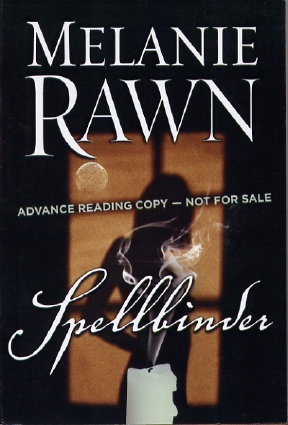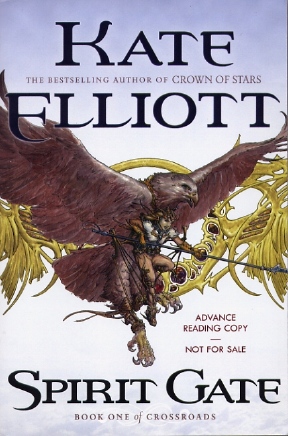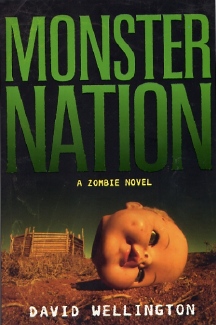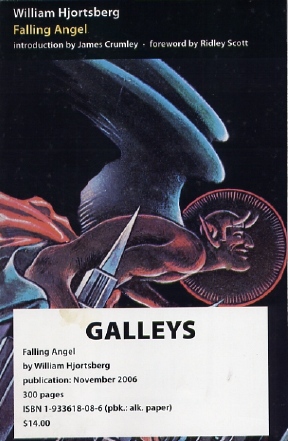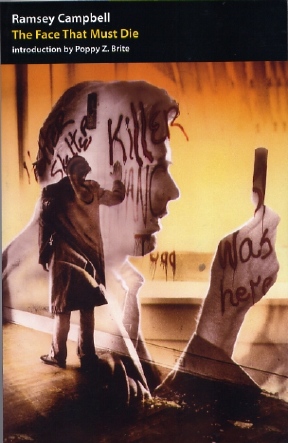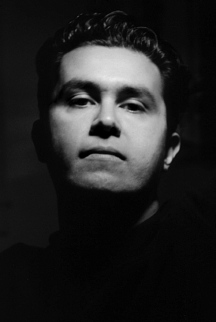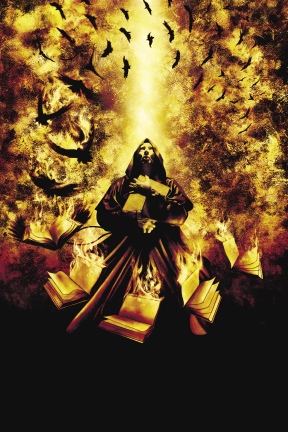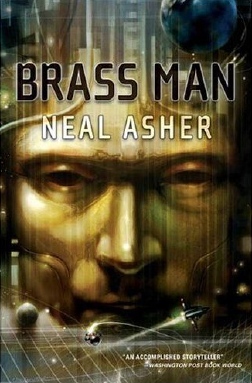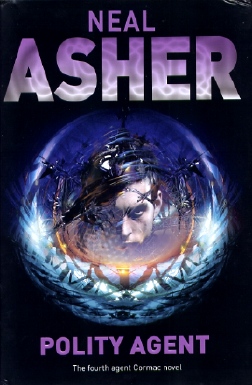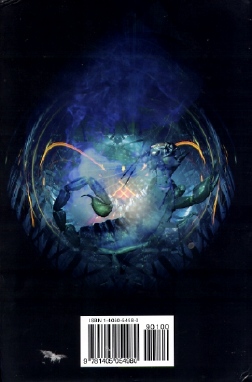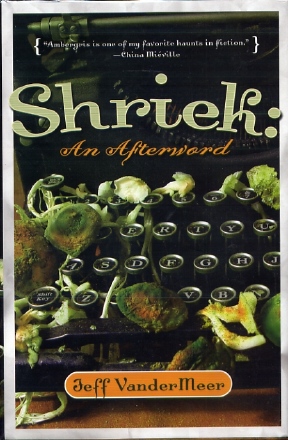|
|
|
This Just In...News from the Agony Column
|
10-06-06: Kate Elliott and Melanie Rawn Blog the West |
|||||||||
'Spirit
Gate' and 'Spellbinder' Meet 'Monster Nation' for a Bite to Eat
Cut to the Tor party during Worldcon. My wife and I, feeling a bit out of place, strike up a conversation with a friendly-looking and very nice young lady who lives in Hawaii – by the name of Kate Elliott. She was smart as a whip, funny, interesting, we both liked her a lot. And thus are books sold. Simple as that; moreover, thus are authors discovered by readers, picky readers, and thus are queues hopped, shopped and filled to bursting. This why you might want to consider attending a convention, because chances are you'll bump into some fascinating conversationalist who will turn out to be a writer. So, I must cop to the fact that part of the reason I'd let Elliott's books pass me by was that I'd only seen the end of the 'Crown of Stars' series; seven books in, and I'm utterly compulsive about such things. I want to get in on the start of a series and thus I am quite fortunate to have 'Spirit Gate' (Tom Doherty Books / Tor ; October 2006 ; $25.95), the beginning of a new series by Kate Elliott. And as for Ms. Rawn? Here's the deal. Rawn and Elliott are touring together, driving up and down the West coast and venturing into New Mexico and even into Texas. Here's a list of tour dates. Here's a link to their blog; they'll be writing about their tour, and I'm quite curious to see what they have to say. Authors on tour generally don’t have a lot of fun. It's one plane ride after another, one city after another, basically all the most unpleasant aspects of travel in a world that equates security with inconveniencing the traveler. In between air flights, authors are generally expected to be maniacally cheerful and put up with grillings from point-picking NPR reporters. And yes, I might resemble that remark. I'm proud to be part of the problem. But this tour promises to be different, as the authors are driving themselves about and conducting it at a slightly more relaxed pace; call it a frantic vacation. Well, that's better than an insanely pressurized business trip, a good summary of the usual book tour, I suspect. Rawn and Elliott seem intent on actually enjoying their tour, which bodes well for those smart enough to get out and see them. Ms. Rawn's latest novel is 'Spellbinder' (Tom Doherty Associates / Tor ; October 2006 ; $24.95). It's a big-deal example of one of the hottest new trends in publishing, which I was talking about at the con with another wonderful and talented writer, Nancy Holder. That trend would be the Paranormal Romance, and even if the genre name gives you the heebies, which it probably should, as with any genre, it has its fine literary practitioners. And before you ask, no, a spellbinder is not the magical and more useful equivalent of a computer's spell check program. On the title page 'Spellbinder' calls itself "A Romance With Magical Interruptions", but a précis of the plot involves Holly McClure, a successful writer and part-time witch in New York, with a murderous psychopath. And thus do the fingers of another hot genre, urban fantasy, get a grip on this story. Holly is, by definition, primarily interested in her love interest, Evan Lachlan, a federal marshal. But yon psychopath has twigged to the fact that Holly is no ordinary witch; she's a spellbinder, and her blood will make whatever he's trying to do work that much better. Rawn brings an impressive bit of research into her novel, creating a supernatural backdrop that is detailed and entertaining. She's a seasoned pro applying her talents with the kind of grace that makes reading effortless. She uses the tropes of the Paranormal Romance to provide her readers with a perfectly orchestrated piece of page-turning, pulse-pounding fiction. Now, as with some movies, different readers will have different flinch factors. Some of us will zip past the horrific sacrifices, and other past the romantic scenes. Your reaction will depend on entirely what you find frightening. But make no mistake about it, Rawn brings years of genre fiction experience to 'Spellbinder' to create an A-list example of the Paranormal Romance.
Of course that last feeling will be familiar to anyone, living in any time, since the world seems be on Zenoic path, each day crossing half of the distance remaining to hell; and thus never actually arriving. Don't drink and drive? How are you going to get anywhere! Elliott writes with the kind of detailed authority that sucks in fantasy readers and immerses them in a world as real as our own, only with giant flying eagles and immortal guardians as opposed to predatory politicians and bomb-tossing anarchists, no wait, strike that, terrorists. For a second I was unstuck in time and it was the 1930s. Damn bomb-tossing anarchists! Why can't they just get along? Probably because they don’t spend enough time reading, and certainly don't spend their time in profitable, life-affirming activities like attending appearances by well-known and talented fantasy writers. 'Spirit Gate' is, we are told, the first of seven books, so you're getting in on the ground floor. Elliott is a talented writer whose work will appeal to that portion of fantasy readers who enjoy the historical and world-building aspects of the genre. She packs her books with the right proportion of action and detail, characters and societies, the warp and woof of real life artfully re-arranged so as to be more entertaining and less distressing.
But back to Rawn and Elliott – on tour. This is Rawn's first novel in eight years, the beginning of a new series by Kate Elliott, and a two-author tour not to be missed. These events will be fun. They will be silly. They will feature two gals havin' a good ol' time driving up and down the coast. You don’t need to go to a convention to meet them, though next time 'round you might want to consider this as a good excuse to do so. No, this – two women writers on the road – is an example of what America has to offer the world. And if you don’t want this, we'll be exporting our novels about flesh eating zombies. The world should just be glad we send the real flesh eating zombies to Washington DC. |
|
10-05-06: William Hjortsberg is Falling Again |
||||||
'Falling
Angel' Re-Issue Plus Ramsey Campbell Bonus
These questions all come to the forefront as we regard the re-issue of William Hjortsberg's 'Falling Angel' (Millipede Press ; November 2006 ; $13). It certainly fits the "stayed in print" description, in spite of the fact that it practically fell out of print on publication, screwing up Hjortsberg's chances of having a best seller. Millipede's publication means the novel is still in print, now in one of their black trade paperback editions. And yes, it was adapted as a movie back in the before time, a movie that never rang my bells, the result of stars and style, not the substance of the story. For most people, 'Falling Angel' equals 'Angel Heart', and the movie has superseded the book in our public awareness, which is alas, so often the case. DeNiro as the Devil sounds so good, even if it doesn't pan out on the silver screen. But let's leave what's best forgotten forgotten and remember what is truly worth remembering – William Hjortsberg's pretty-much ground breaking combination of noir and the supernatural. We see a lot of that these days, what with every other vampire detective and their ill-got brethren pulling on a trench coat. But before Anita Blake was a gleam on Laurell K. Hamilton's computer monitor, William Hjortsberg's Harry Angel was following up on a routine missing persons case that would soon devolve into a horrific blend of violence and the supernatural, a surreal vision tethered to Hjortsberg's own vision of a Post WWII, Pre-60's NY. As usual, Millipede is not just offering the novel itself, but the novel in a nice package with a slew of DVD-style extras. In this case, the extras include a snappy little essay about the book by James Crumley, often a recipient of the publishing attentions of Dennis Macmillan. They include the single-paragraph "Forward" by Ridley 'Legend' Scott, in case one bad movie isn’t enough for you. Readers of a certain age will recall that Hjortsberg wrote the screenplay for Scott's sort-of-fantasy opus starring a pre-$cientology Tom Cruise. It looked gorgeous in parts, but seems to be a string of special effects rather than a coherent story, and one wonders how much of Hjortsberg's original made it onto the screen. You'll wonder a lot more when you read the drum-tight 'Falling Angel', and in this new edition, that won’t take long. Of course this is a new edition, and Hjortsberg has provided a fascinating new Afterword that talks about how he came to create the novel and what happened to it once it got into Hollowood's hands, which as you might presume, is something of a horror story itself. Just in case you thought that Millipede would be satisfied with this set of extras, think again. Excess is never enough, and we get Stephen King's letter of praise to Hjortsberg's publicist (?) from, again, back in the before time, that is, 1978. I guess King was already King so long ago, though it hardly seems possible. And finally, we get the 1980 short story 'Sidekick', a gritty little bit of Western shoot'em up. Fun, but not what one would be inclined to call majorly substantial. Still, it is certainly more. Is Millipede's version of 'Falling Angel' worth seeking out? If you've never read the book, certainly, and even if you have a copy of the book, it's still worth look-see.
And that's the beauty of these Millipede Press re-prints. They're bringing back an incredibly eclectic selection, they're creating great books with illustrations and everything is available in affordable trade paperback editions. It's a quirky, weird niche, the exact kind of niche that needs filling. Preserving our literary heritage is not easy, especially when so much stuff goes under the radar the first time around. What makes these books classics? Nothing less than the effect they have on your brain when you read them. |
|
10-04-06: Getting the Cover Story |
||||||
A
Conversation With Cover Artist John Picacio
Since I wrote about him, I've had the pleasure of meting Picacio at both the World Horror Convention and the World Science Fiction Convention. If you ever get a chance to meet him at one your local bookshops, jump at it. I was lucky enough to get a chance to do an email interview him and now you're lucky enough to get to read it. Any questions? Well, I had a few of course – with, not surprisingly a Santa Cruz spin to them. RK: You studied to be an architect and ended up in illustration. How did you make that journey? JP: I think illustration was where my heart was, all along. I just happened to be good at architecture and design and it seemed like a stable path, and it was what I got my degree in. Once I finished school, I started working in architecture full-time, but I was always doing my illustration work when I came home at night. Finally I took the plunge and went full-time toward illustration in 2001 and I haven't looked back. RK: At what point in the publication process do you arrive? Do you get to read the entire book before you start your work?
RK: How much of your work is done on the computer? JP: Less than you might think. Every bit of drawing and painting is done with traditional media and with my hands, and never with the computer. I use the computer to composite all of these bits of hand-created art, but I don’t use it to make the elements themselves. RK: Can you talk about the shift from pure pencil and painting to the current combination of digital and analog formats? JP: I love the best of both worlds. Pencil and paint will never die, and those are my media of choice. On the other hand, I'm a big advocate of the design and idea-making potential that you have when you interact with a computer. I think that an artist has to address his own times, or he/she isn't really an artist. And if you're completely ignoring the computer as a tool in this day and age, I'm not sure how valid of an artist you can really be, since digital media is a very real shaper of these current times, like it or not. RK: Do you travel much to do your work? Extra points for travel to Santa Cruz! JP: It would be nice to get out to Santa Cruz. I've never been. I do several conventions a year. I just did World Horror Con in San Francisco. I'll do San Diego Comic Con, Armadillocon (Austin, TX), World Science Fiction Con (Anaheim) and World Fantasy Con (also Austin) later this year. RK: What are you reading and working on at the moment? JP: I only read what I work on these days. So I'm currently reading SON OF MAN by Robert Silverberg because I'm doing a cover for the new Pyr edition that comes out next year. Today I'm sketching for a cover for a brand-new X-MEN novel written by my good buddy Chris Roberson and that'll come out next year from Simon & Schuster/Pocket. Lots more besides those, but those are the two items on my plate today. |
|
10-03-06: A Double Dose of Asher from Both Sides of the Pond |
|||||||
'Brass
Man' and 'Polity Agent'
But Asher is surely worth the price of an expensive, imported hardcover (imported here in the US of A, at least while the Brits reading this can only gloat down at London's Forbidden Planet, damn you, damn you!). [Also, why else do we have our white Demco gloves, but for such instants?] So for the impatient, the compulsive, the weirdly grabbing types here, wait no longer; 'Polity Agent' (Tor UK / Pan Macmillan ; October 7, 2006 ; £17.99) has arrived. Yes a weirdly bland title, but sort of cool, pumping up the whole James Bond feel of the series. But don't worry, for all the secret agent feel imparted by the title, the real story here is a continuation of Asher's huge-scale, monsterific space opera, bringing in elements from his time-opera 'Cowl' as time travellers from the future open up a gate in Ian Cormac's patch of space. They're trying to take back the alien Maker, but the Jain tech that proves so entertaining in 'Brass Man' leads to a shutdown, trapping them in the present. Meanwhile more Jain nodes are being salted about and monsters are coming at everyone from every side. It's enough to keep a super-space-spy busy for some 487 pages. And his writer busy for nine months. Asher's space opera is unfolding in a rather unusual manner. We have the feeling that he has not pre-ordained a particular ending to this story, but rather that both the author and the readers are exploring the same wide-open vistas of the imagination together. The fact that 'Brass Man' returned to a reader favorite (though clearly a minor character in the novel in which he first appeared) is indicative of a more, interactive and organic approach to exploring a universe. Not that there aren't huge chunks of backstory that are slowly settling into place. Asher preserves the feel of the best SF, the sense that there is a bit more to the story not only than we do comprehend, but than we can comprehend. Asher is walking a tight wire for us and it’s a hell of a thing to read, novel after novel. Let's see; nine months puts his next book at, wait for it, July 2007. Where will he go next and where will we be when he gets there? |
|||||||
|
10-02-06: Stand in Ambergris |
|||
A 2006 Interview With Jeff VanderMeer
'Shriek' has been banging around my shelves for a while in a variety of editions that itself seems practically metafictional. I've hung back on talking about it because I wanted to read the latest and greatest edition, published by Tor and edited by Liz Gorinsky, one of Tor's most interesting new talents. One could also read the MacMillan UK version, which benefited from the fantastic work Peter Laverty and Rebecca Saunders. It's a rare and exciting treat when one can find so many remixes of the same prose-song. VanderMeer and I discuss all the nitty-gritty details about the publication of this book, the kind of stuff that I happen to be really interested in; how he chose the type and conversational conventions to portray this very peculiar combination of two eccentric and highly unreliable narrators who weave the story of a violent trade war waged within the confines of VanderMeer's fictional city of Ambergris. I've uploaded the MP3 and RealAudio versions of the interview, and by the time you read this, the podcast (subscribe link) should be updated as well. Jeff and I had an actual conversation, and we didn't always agree, which makes it all the more interesting. To my mind, Jeff's created world of Ambergris is somewhat hermetic, even though it surely, as he asserts, partakes of huge parts of the this here-and-now world. I'd certainly agree with Jeff that one of the great strengths of his work is that he sort-of remixes our world into a fantastic milieu. Telephones and fungus bombs. And I really like the fact that there is no, you know, scene where somebody walks through a magic elevator, or gets in a taxi, or jets off to another world which turns out to be ours. At least in 'Shriek', you'll not a get any clues as to whether Ambergris lies in the past, the future, or in some alternate universe. It simply comes to life in the reader's mind So I'll let you enjoy the interview without intervention and brief discuss the novel, which I pretty much assume is at the top of most of my readers' queues. 'Shriek: An Afterword' is an unusual novel that is not easy to describe. On one hand, VanderMeer is an expert at deploying post-modern narrative and meta-fictional techniques. Readers who enjoy novels with blobs of created non-fiction inserted in the text will delight at VanderMeer's skills in creating the examples found here. But mostly what you get here is two novels in one; the same tale told and commented upon by a brother and sister with a very different experience of the very different world that is Ambergris. The story is poignant and gorgeously written, but it's also quite funny and surreal. From Art Wars to Trade Wars, VanderMeer maps a terrain of human conflict that is complex and consistently surprising. You will find no plot clichés here, nothing expected. Prepare for a totally immersive experience, a reading experience that has no real analogue. This city, Ambergris is as real as the words on the page. |
